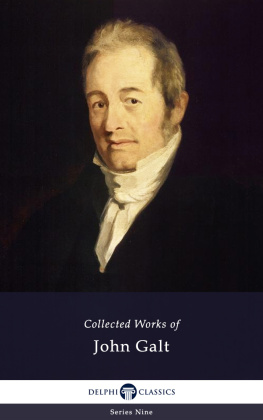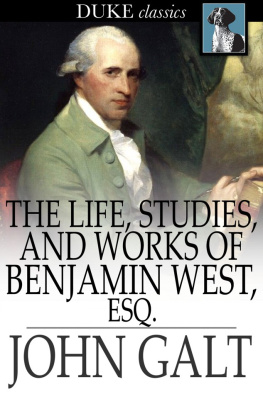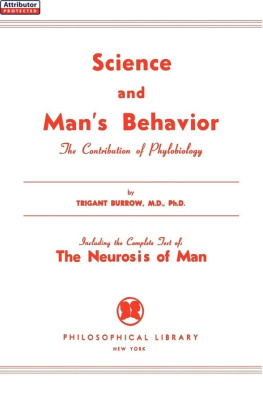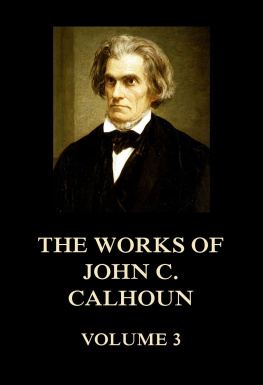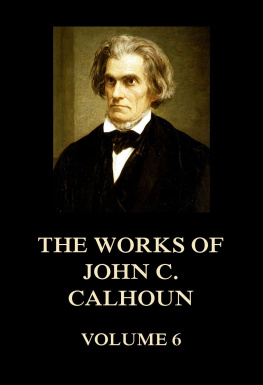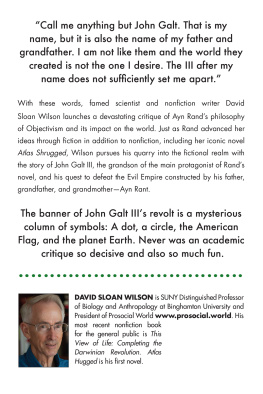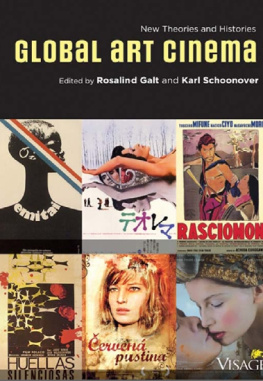
The Collected Works of
JOHN GALT
(1779-1839)

Contents

Delphi Classics 2018
Version 1


Browse our Main Series

Browse our Ancient Classics

Browse our Poets

Browse our Art eBooks

Browse our Classical Music series

The Collected Works of
JOHN GALT

By Delphi Classics, 2018
COPYRIGHT
Collected Works of John Galt

First published in the United Kingdom in 2018 by Delphi Classics.
Delphi Classics, 2018.
All rights reserved. No part of this publication may be reproduced, stored in a retrieval system, or transmitted, in any form or by any means, without the prior permission in writing of the publisher, nor be otherwise circulated in any form other than that in which it is published.
ISBN: 9781788779203
Delphi Classics
is an imprint of
Delphi Publishing Ltd
Hastings, East Sussex
United Kingdom
Contact: sales@delphiclassics.com

www.delphiclassics.com
Parts Edition Now Available!

Love reading John Galt ?
Did you know you can now purchase the Delphi Classics Parts Edition of this author and enjoy all the novels, plays, non-fiction books and other works as individual eBooks? Now, you can select and read individual novels etc. and know precisely where you are in an eBook. You will also be able to manage space better on your eReading devices.

The Parts Edition is only available direct from the Delphi Classics website.
For more information about this exciting new format and to try free Parts Edition downloads , please visit this link .
The Novels

The building on the High Street, Irvine, Ayrshire, where Galt was born on 2 May 1779

A modern view of Irvine High Street
Glenfell

OR, MACDONALDS AND CAMPBELLS
Before turning to novel writing in his late twenties, Galt had already penned several works of political commentary, poetry, travel writing and biography. He had also begun to train as a lawyer and had travelled widely in Europe in company with Lord Byron.
Glenfell was published in one volume in January 1820 and is a story of contemporary social life in Edinburgh. It was part of a series entitled The Circulating Library, which aimed to provide middle-class readers with morally-respectable fiction. Hence, Galts anonymous preface, which proclaims his intention of avoiding social satire in favour of a gentle moralizing vein and the adoption of a becoming gravity in his story of Edinburgh life.

Title page of the first edition
CONTENTS

St Giles Cathedral, Edinburgh, in the late eighteenth century
GLENFELL
OR, AN EDINBURGH TALE
OF THE NINETEENTH CENTURY.
A plague on both your houses.
Shakespeare.
PREFACE.

I N THE FOLLOWING tale our Readers are called upon to believe, that it has been our object to touch the various pathetic incidents developed in the progress of the work, with all the affecting sentiments so beautifully characteristic of the tender passion in the present enlightened age, and to avoid, by a skilful selection of the most elegant occurrences, in the vicissitudes of that high state of society which we have undertaken to describe, every thing that is not of the most refined and exquisite quality. For we hold in great contempt all those who have, of late years, given but too much encouragement to a class of authors that presume to think novels and romances may be made the vehicles of agreeable historical information, combined with descriptions of character, which show so little invention, that they are, by the most competent judges, considered almost as portraits of particular living persons.
And to mark, indeed, how decidedly we differ in opinion from them, we have only alluded, and that in the most distant and delicate manner, to the social festivals which, during the winter, are so illustrative of the general state of society in Edinburgh; taking care to enter into none of those details which might lead the reader to imagine that we regarded them as peculiarly marking the manners and expedients of any class or individuals. In short we have been governed by a liberal philosophy in our little comedy of northern errors, and neither general nor particular satire entered into the scope of our plan. Ambitious of offering to the world a work pregnant with instruction, we have, throughout preserved a becoming gravity. It would ill have suited that gentle moralizing vein which we feel to be the predominant quality of our genius, to have chosen any other style than the calm and dignified, which we have throughout endeavoured to support, and we trust not without success.
Next page
